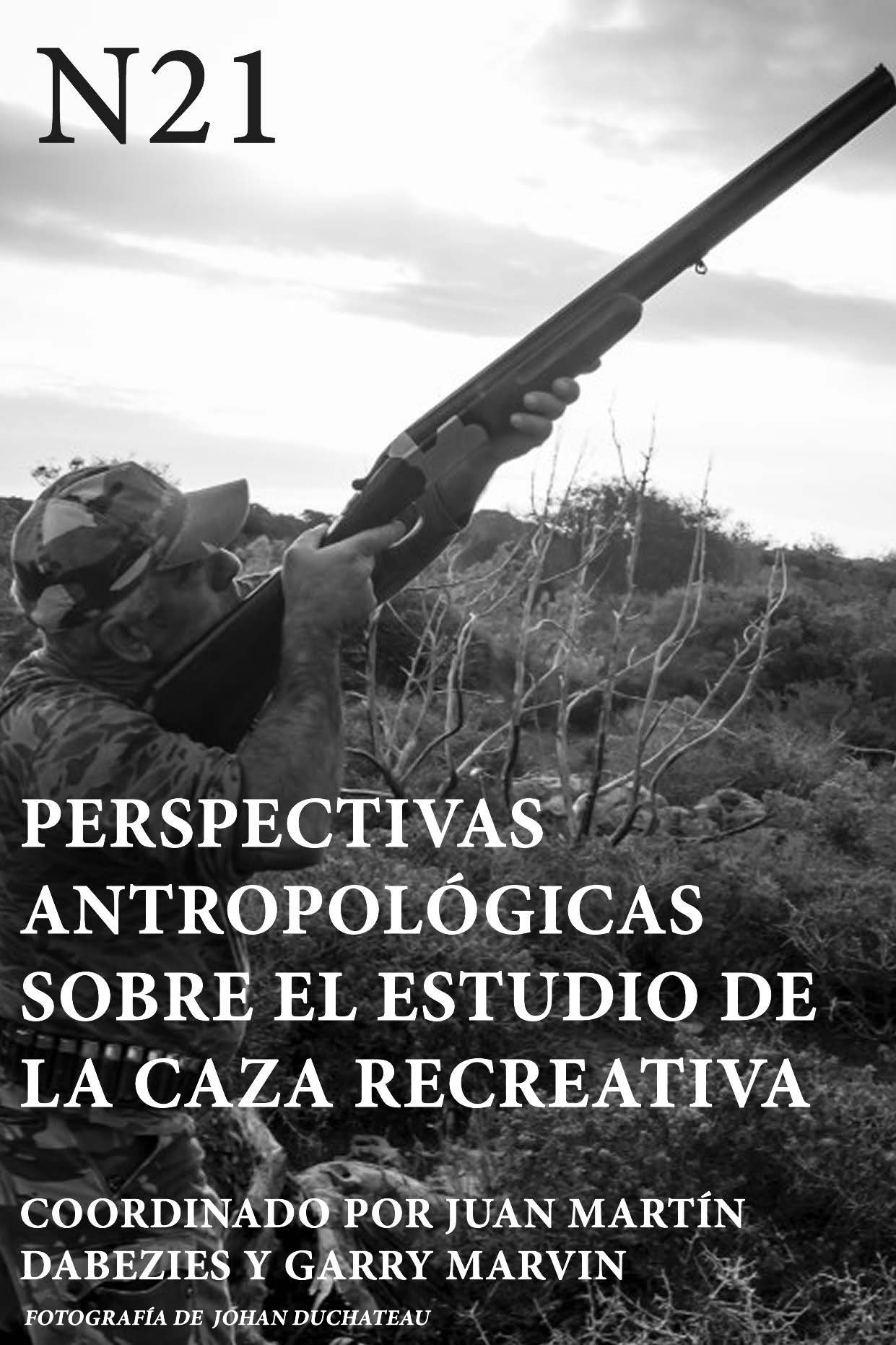Abstract
In this article I offer a sensory exploration of hunting landscapes in contemporary Germany. In a first step, I show how such landscapes are built on and materially structured as cultural landscapes through hunting practices. In the remainder of the article, I examine more specifically how hunters perceive this landscape while being engaged in hunting and looking for game animals. Drawing on Merleau-Ponty’s phenomenology of perception, I describe not only what “objects” hunters single out in this landscape as relevant for their practice. More importantly, I extend perception from a mere “object recognition” to the skilled sensing of perceptual Gestalt relations in the landscape, guided by embodied sensations. Hunters’ perception conceived this way thus becomes an atmospheric practice within the meshwork of a whole elemental weatherworld. I conclude by showing how a phenomenological understanding of hunters’ perception might help ethnographers to open up new horizons of more-than-human worlds.
Riferimenti bibliografici
Anderson, David (2002) Identity and Ecology in Arctic Siberia: The Number one Reindeer Brigade. Oxford: Berg.
Bender, Barbara, and Winer, Margot (ed.) (2001) Contested Landscapes: Movement, Exile and Place. Oxford: Berg.
Böhme, Gernot, and Böhme, Hartmut (1996) Feuer, Wasser, Erde, Luft. Eine Kulturgeschichte der Elemente. München: Beck.
Böhme, Hartmut (2000) “Anthropologie der Vier Elemente”. In: Kunst- und Ausstellungshalle der Bundesrepublik (ed.) Wasser. Köln, pp. 17-38.
Edensor, Tim (2017) “Aurora Landscapes: Affective Atmospheres of Light and Dark”. In Benediktsson, Karl and Lund, Katrin Anna (ed.) Conversations With Landscape. Farnham: Ashgate, pp. 227-240.
Genath, Peter (2005) ‘Es geht fast täglich auf den Brocken ...!’ Der Arbeitsalltag der Ranger im Nationalpark Hochharz aus volkskundlicher Perspektive. Münster: Waxmann.
Gieser, Thorsten (2016) “Notes from the forest: Engaging with a hunter’s world of materials”. Available at http://www.materialworldblog.com/2016/11/notes-from-the-forest-engaging-with-a-hunters-world-of-materials/.
Gieser, Thorsten (2018) “The experience of ‘being a hunter’: Towards a phenomenological anthropology of hunting practices”. Hunter-Gatherer Research, 3: 227-251.
Gieser, Thorsten (2018) “Killing a wounded sow: a phenomenological approach to a problematic hunting situation”. In Thiemo Breyer & Thomas Widlok (eds) The Situationality of Human-Animal Relations: Perspectives from Anthropology and Philosophy. Bielefeld: Transcript.
Gieser, Thorsten (2020) “Hunting wild animals in Germany: conflicts between wildlife management and ‘traditional’ practices of Hege”. In Michaela Fenske & Bernhard Tschofen (eds.) Managing the Return of the Wild: Human Encounters with Wolves in Europe. London: Routledge, pp. 164-179.
Grasseni, Cristina (2004) “Skilled Vision. An Apprenticeship in Breeding Aesthetics”. Social Anthropology, 12: 41-55.
Grasseni, Cristina, and Gieser, Thorsten (2019) “Skilled Mediations: Introduction”. Social Anthropology (Special Section on Skilled Mediations) 27(1): 6-16.
Haraway, Donna (2008) When Species Meet. Minneapolis: Minnesota University Press.
Grasseni, Cristina, and Gieser, Thorsten (2016) Staying with the Trouble: Making Kin in the Chthulucene, Durham and London: Duke University Press.
Heidegger, Martin (2012) Der Ursprung des Kunstwerks. Frankfurt: Klostermann.
Ingold, Tim (2000) The Perception of the Environment: Essays, in Livelihood, Dwelling and Skill. London: Rotledge.
Ingold, Tim (2011) Being Alive: Essays on Movement, Knowledge and Description. London: Routledge.
Ingold, Tim (2017) Anthropology and/as Education. London: Routledge.
Lehmann, Albrecht (1999) Von Menschen und Bäumen. Die Deutschen und ihr Wald. Hamburg: Rowohlt.
Lehmann, Albrecht/Schriewer, Klaus (Hg.): Der Wald. Ein deutscher Mythos? Berlin: Reimer.
Lindner, Kurt (1956) Die Lehre von den Zeichen des Hirsches. Berlin: De Gruyter.
Lorimer, Jamie; Hodgetts, Timothy, and Barua, Maan (2019) “Animals’ Atmospheres”. Progress in Human Geography, 43: 26-45.
MacDougall, David (2006) The Corporeal Image. Film, Ethnography, and the Senses. Princeton: Princeton University Press.
Macnaghten, Phil/Urry, John (1998) Contested Natures. London: Sage.
Merleau-Ponty, Maurice (2005) Phenomenology of Perception. London: Routledge.
Moore, Lisa Jean, and Kosut, Mary (2014) Buzz. Urban Beekeeping and the Power of the Bee. New York: New York University Press.
Ogden, Laura (2011) Swamplife: People, Gators, and Mangroves Entangled in the Everglades. Minneapolis: Minnesota University Press.
Ortega y Gasset, José (2007) Meditations on Hunting. Belgrade: Wilderness Adventures Press.
Pink, Sarah (2007) Doing Sensory Ethnography. London: Sage.
Prinz, Sophia (2014) Die Praxis des Sehens. Über das Zusammenspiel von Körpern, Artefakten und visueller Ordnung. Bielefeld: Transcript.
Schriewer, Klaus (1995) Waldarbeiter in Hessen. Kulturwissenschaftliche Analyse eines Berufsstandes. Marburg: AVK.
Schriewer, Klaus (2015) Natur und Bewusstsein. Ein Beitrag zur Kulturgeschichte des Waldes in Deutschland. Münster: Waxmann.
Schroer, Sara, and Schmitt, Susanne (eds.) (2018) Exploring Atmospheres Ethnographically. London: Routledge.
Waldenfels, Bernhard (2000) Das leibliche Selbst. Vorlesungen zur Phänomenologie des Leibes. Frankfurt/Main: Suhrkamp.

Questo lavoro è fornito con la licenza Creative Commons Attribuzione - Non commerciale - Condividi allo stesso modo 4.0 Internazionale.
Copyright (c) 2021 La Universidad de Sevilla se reserva todos los derechos sobre el contenido de las revistas científicas tuteladas por su editorial. Los respectivos textos no pueden ser utilizados, distribuirse, comercializarse, reproducirse o transmitirse por ningún procedimiento informático, electrónico o mecánico con ánimo de lucro, directo o indirecto, ni tampoco incluirse en repositorios ajenos, sin permiso escrito de la Editorial Universidad de Sevilla. La distribución de estas obras derivadas se debe hacer con una licencia igual a la que regula la obra original y podrán ser usados y citados para fines científicos y referenciados con transformación para usos académicos, indicándose en todo caso la autoría y fuente, pudiendo para ello remitir al correspondiente enlace URL de Internet

